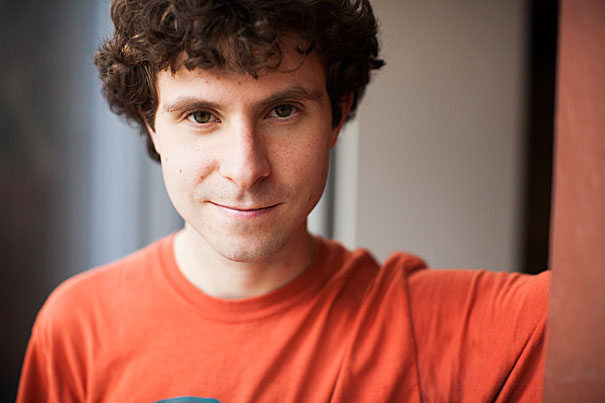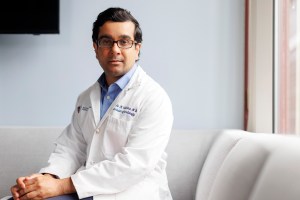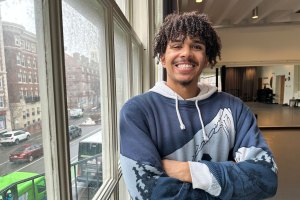Arts & Culture
-
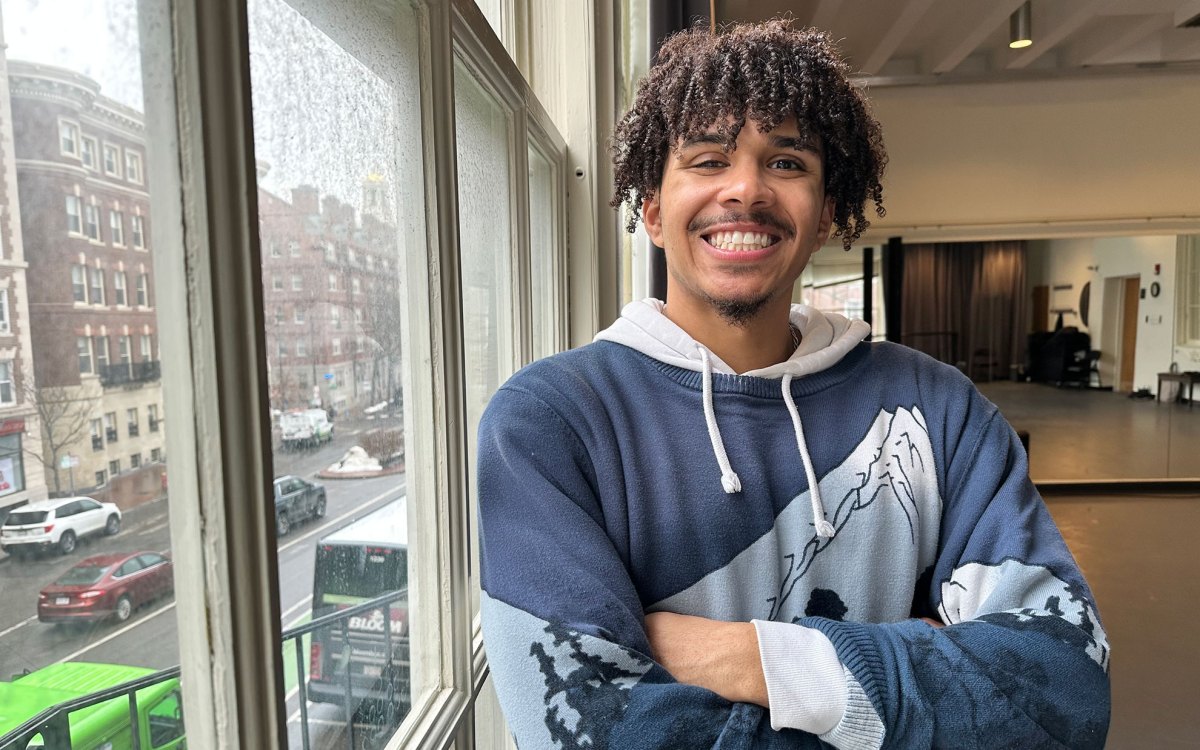
Retelling Frederick Douglass’ story, with a soundtrack
Senior composes musical about abolitionist’s early life
-
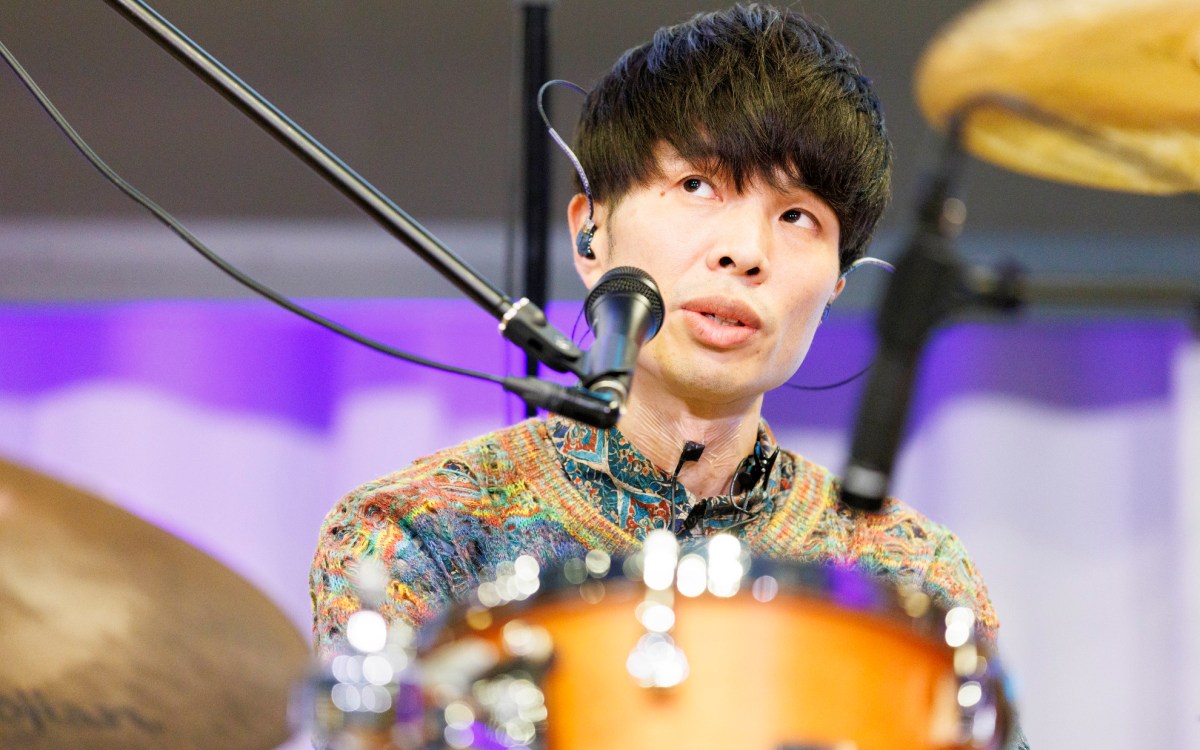
‘The sound stopped suddenly’
After rare condition robbed drummer of ability to play music, science led him back
-

Moved by what’s missing in Homer’s ‘Harrow’
Curator launches series steeped in U.S. history
-

Tina Fey’s keys to a good joke: Snark, confidence, surprise
Comedian keeps Harvard crowd laughing with longtime co-writer Robert Carlock ’95
-

How Bad Bunny rocketed to global stardom
Music scholar charts ‘remarkable’ rise that transcended language barriers and cultural stigma
-
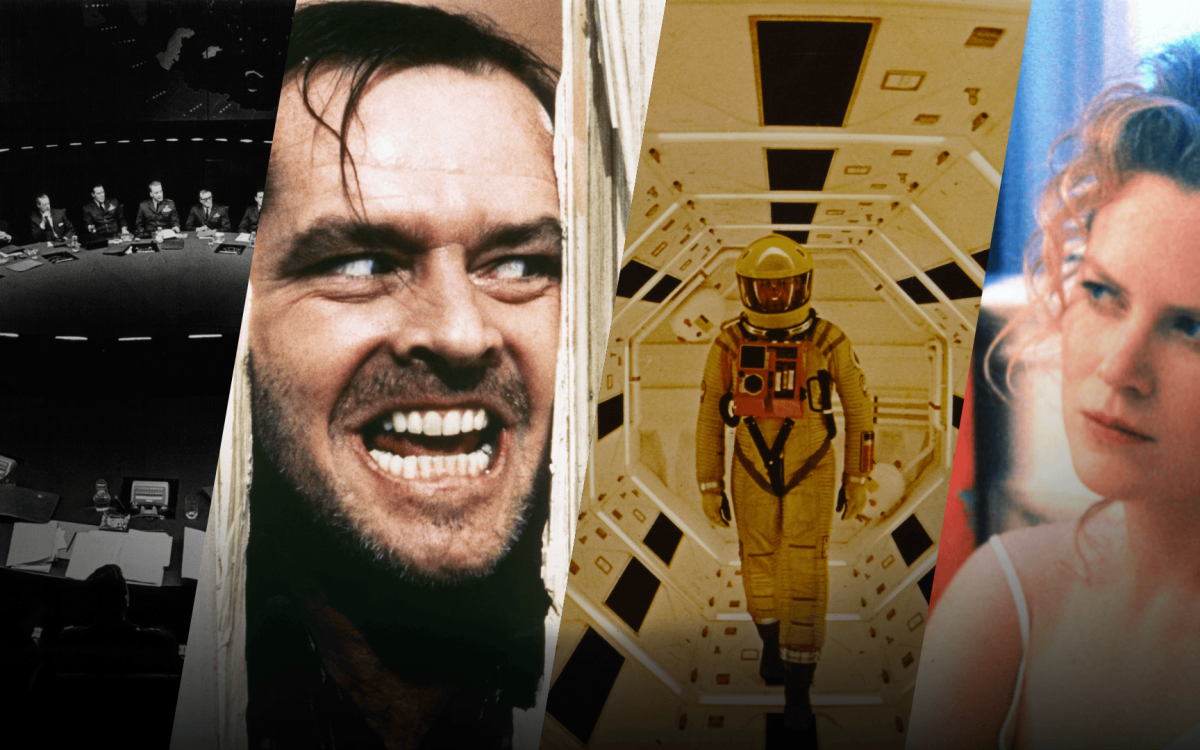
‘A whole new experience of Kubrick’
As HFA screens full works, professor dissects why films like ‘The Shining’ and ‘2001’ still provoke audiences today
-
Black like we
A panel discussion introduced an exhibit of photos from the Paris World’s Fair of 1900 that shows African-Americans as they wished to be depicted, not as a discriminatory American society would have had them be.
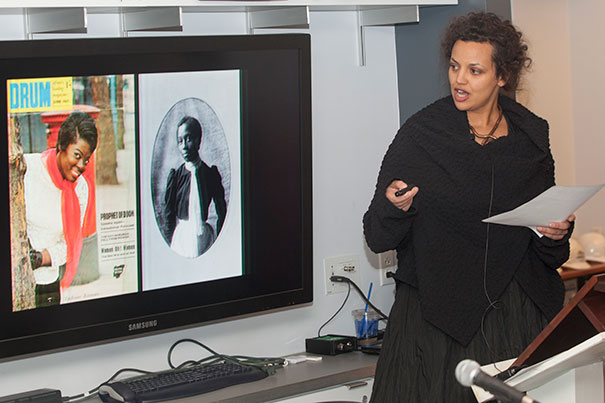
-
The digital Dickinson
Houghton Library and Harvard University Press are two of the leading partners in the new Emily Dickinson Archive, a joint venture with other institutions that brings together most of her poem manuscripts.
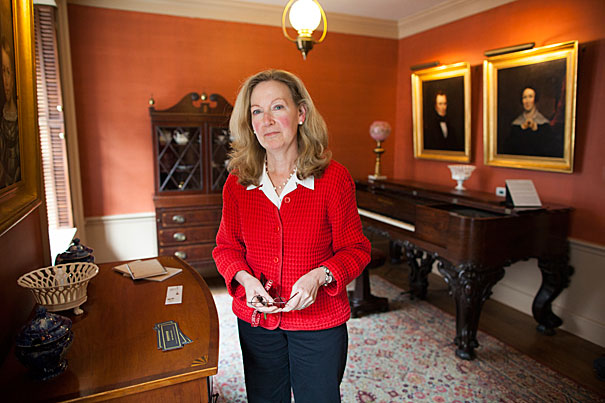
-
The queen and the sculptor
French Egyptologist Alain Zivie, a visiting scholar at the Semitic Museum, told a Harvard audience of his discovery of the tomb of Thutmose, who he believes is the artist who created the iconic bust of Queen Nefertiti.
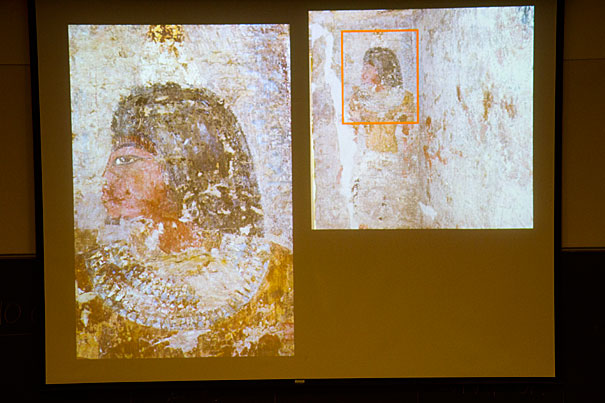
-
When all turn right, go left
Avant-garde visual artist Robert Wilson delivered a talk at the Graduate School of Design, and jarred his audience into new imaginative spaces.

-
Poetry spreads its web
At month’s end, Professor Elisa New will begin teaching “Poetry in America,” her first digital course on HarvardX.
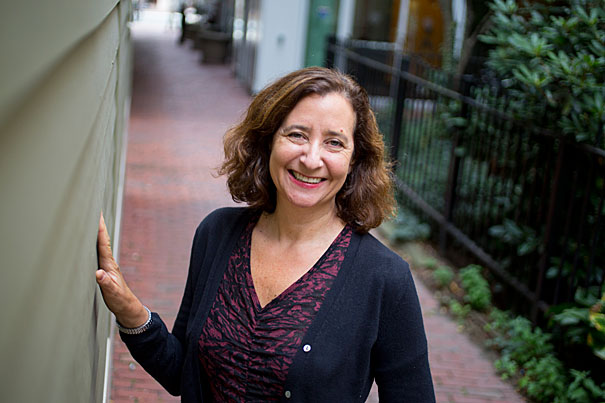
-
Moving dirt, and history
A Harvard student who is interested in a career in archaeology spent her summer on a Peruvian dig, with lots of mundane work and a bright discovery to show for it.
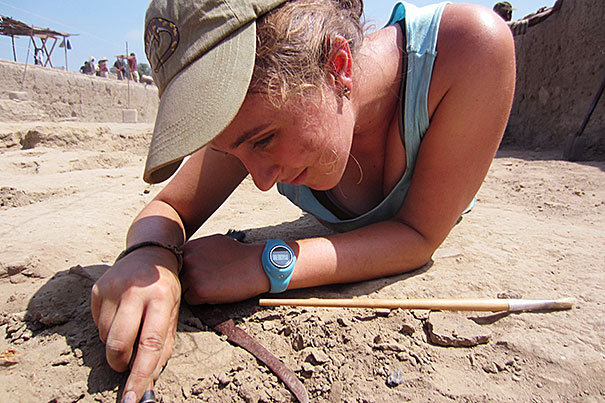
-
The things they carried
We get close to long-dead great writers by reading the works they left behind. But there is another way, which can be just as electric and emotional: to see or touch or just be near artifacts from their writing lives.
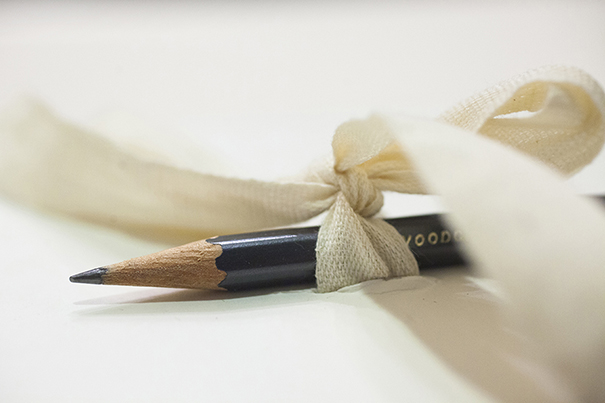
-
Colonial Korea, revealed
The Graduate School of Design hosted a conference on the history of Korean architecture, which still lingers in the shadow of Japanese modernism.
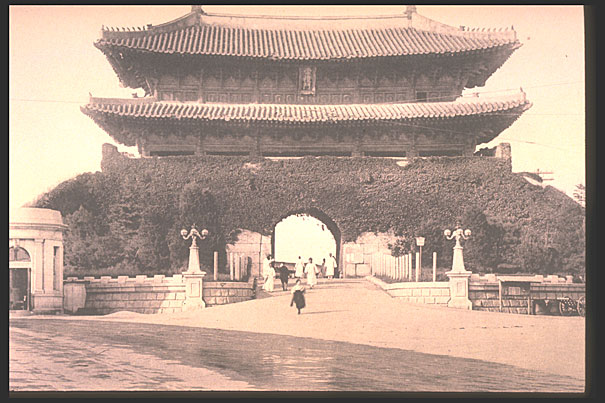
-
At Du Bois awards, the stars aligned
The six medalists at the W.E.B. Du Bois awards included a White House adviser Valerie Jarrett, playwright Tony Kushner, U.S. Rep. John Lewis, Associate Justice of the U.S. Supreme Court Sonia Sotomayor, the commissioner of the NBA David Stern, and Hollywood director Steven Spielberg.
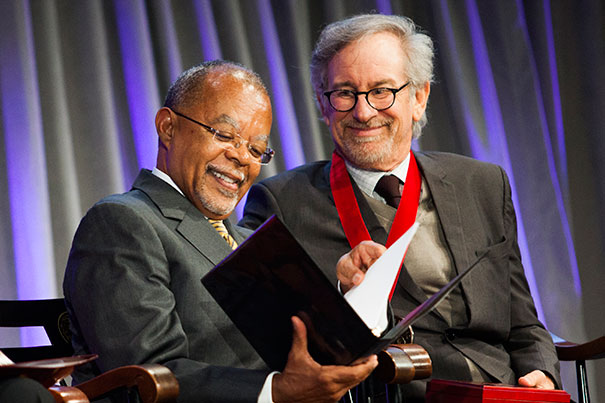
-
The jazz orchestra, brick by brick
Jazz trumpeter and composer Wynton Marsalis and his Jazz at Lincoln Center Orchestra treated a Sanders Theatre audience to a master class Thursday evening that re-created a pivotal quarter century of jazz innovation.
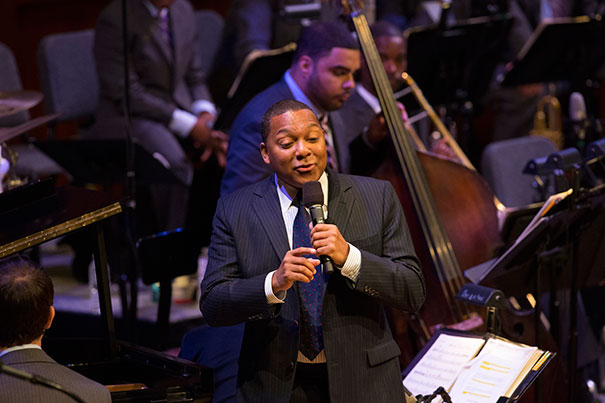
-
The shape of things to come
The Office for the Arts’ Ceramics Program, one of Harvard’s longest and most celebrated, moved this month from its home of 26 years at 219 Western Ave. in Allston just a few blocks down to 224.

-
Social justice at the A.R.T.
From a world premiere musical about U.S. aid work in Africa to a girl struggling to cope with her dysfunctional family, the American Repertory Theater’s lineup for this season revolves around the theme of justice.
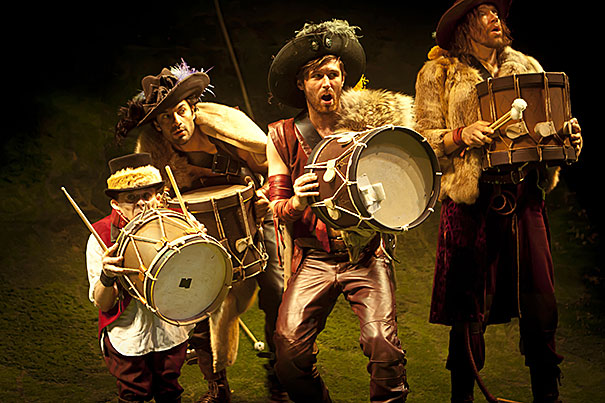
-
The modern opens the past
In the inaugural lecture of a series organized by Harvard’s Digital Futures consortium, data-publishing entrepreneur Eric Kansa lays out a case for archaeology to “get on the map” of disciplines sharing data widely on the Web.
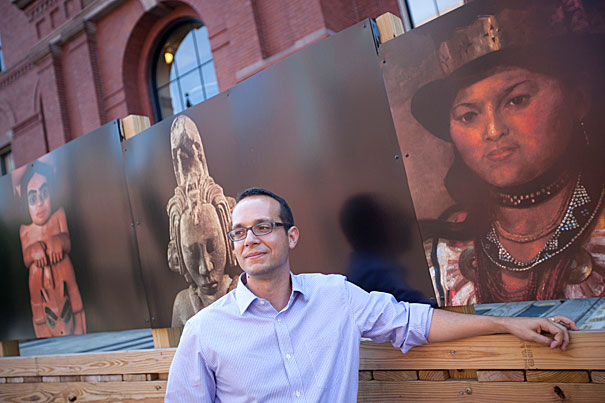
-
Harvard’s Indian College poet
With the discovery of a poem missing for 300 years, two Harvard graduate students have filled in some missing blanks on Benjamin Larnell, the last student of the colonial era associated with Harvard’s Indian College.
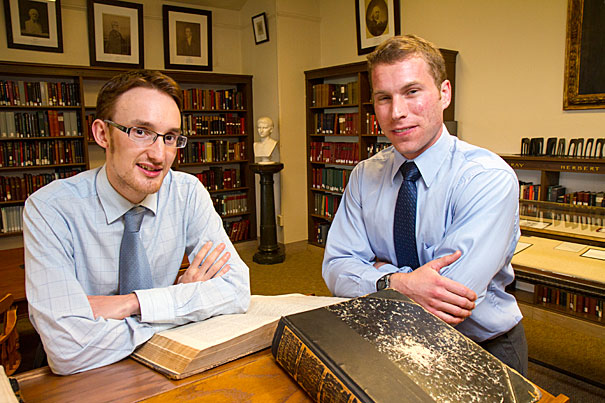
-
Peering into the Fogg
Harvard Art Museums officials offered an early look at the progress of the renovation and expansion project that will unite the Fogg, Busch-Reisinger, and Sackler museums under one roof.
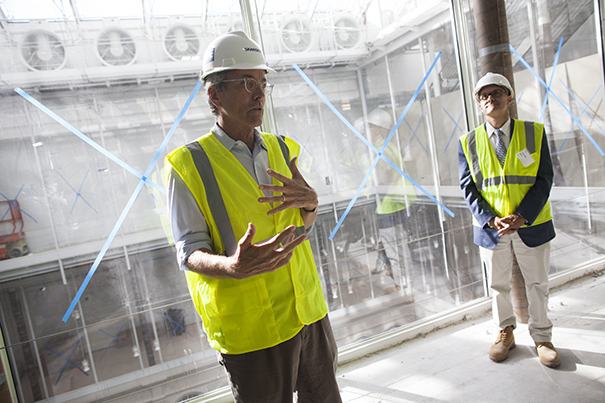
-
Club Passim plays to its Harvard audience
Club Passim remains a vital part of the Harvard Square scene, as well as a venue that has attracted Harvard students for decades.
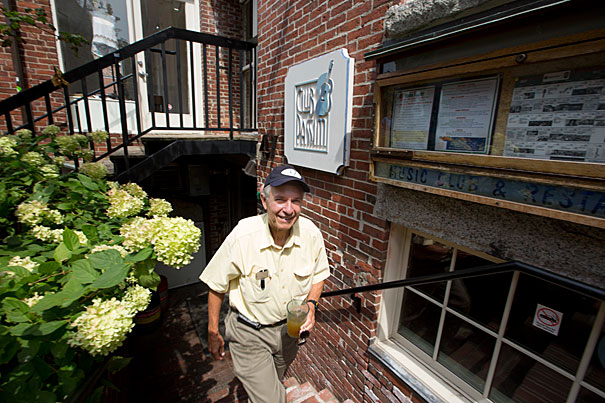
-
On closer inspection, not such a plain Jane
In her latest work, “Book of Ages: The Life and Opinions of Jane Franklin,” Jill Lepore, a professor of U.S. history at Harvard and a staff writer for The New Yorker, brings Benjamin Franklin’s sister out of history’s fog and into the open.
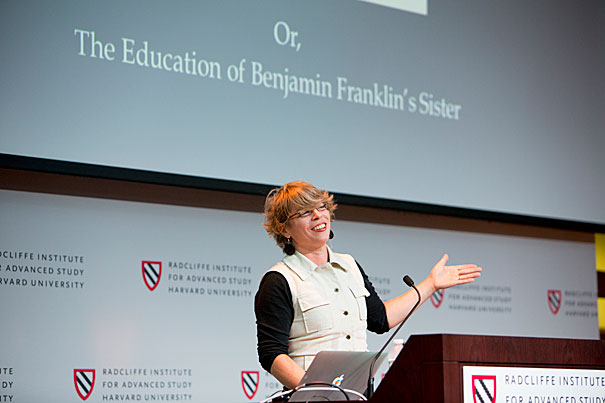
-
Six artists, teaching and creating
Following tradition, Harvard’s Department of Visual and Environmental Studies is hosting visiting faculty, six artists this year. Talks have been scheduled through November. The opening reception is Sept. 12.
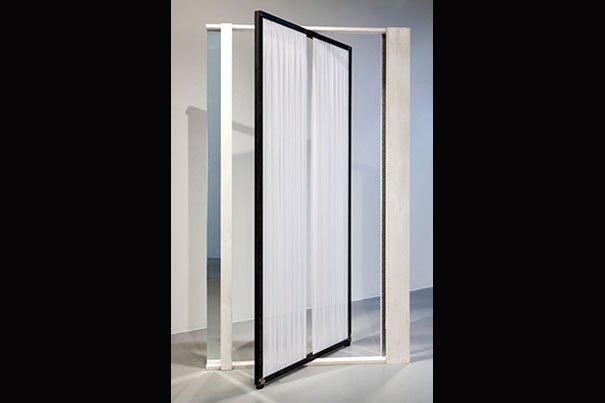
-
Wynton Marsalis to continue lecture-performance series
Wynton Marsalis will continue his lecture series this month, featuring the Jazz at Lincoln Center Orchestra at Sanders Theatre on Sept. 26.
-
‘All the Way’ to A.R.T.
Award-winning director Bill Rauch ’84 has returned to Harvard to present the play “All the Way,” a powerful examination of President Lyndon B. Johnson, civil rights leader Martin Luther King Jr., and the critical events leading up to the passage of the Voting Rights Act of 1964. The show will open the American Repertory Theater’s season.
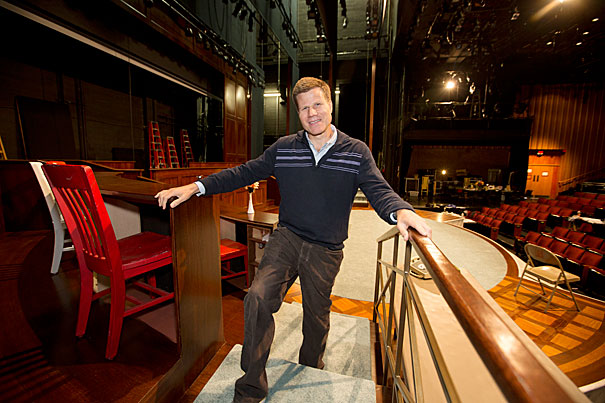
-
Zines were the scene
Two Harvard undergrad spent the summer at Widener Library working with a newly acquired collection of zines, the self-published, self-distributed counterculture voices of the 1980s and early ’90s.
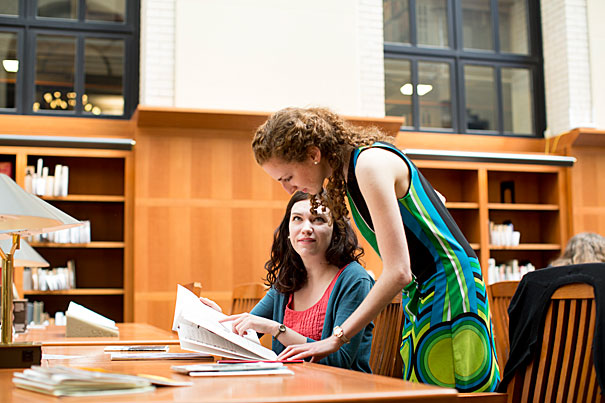
-
Food, gender, culture
Harvard Summer School is big, young, diverse, and challenging — qualities summed up nicely by a course on food, gender, and American culture.
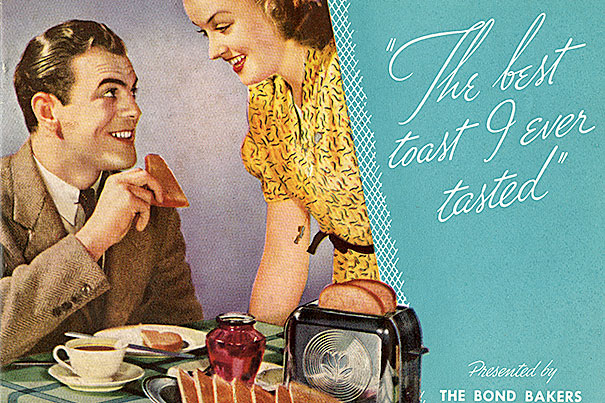
-
Light, bright, and modern
The strikingly modernist Carpenter Center, which turned 50 this year, was Le Corbusier’s only building in North America and was the last major project of his life. This video explores the building’s color palette.
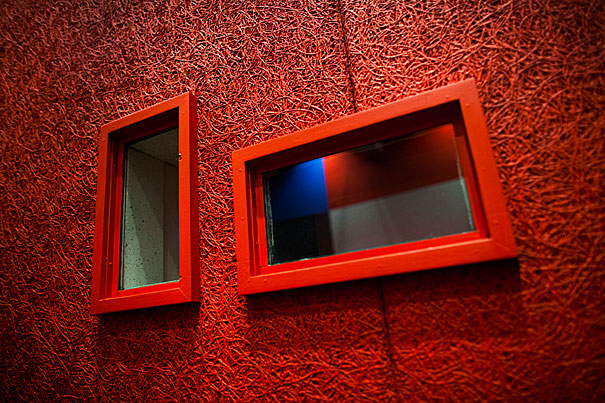
-
Harvard’s gates, on the screen
The Nieman Foundation’s first e-book explores the history, mystery, and magic of the gates surrounding Harvard Yard.
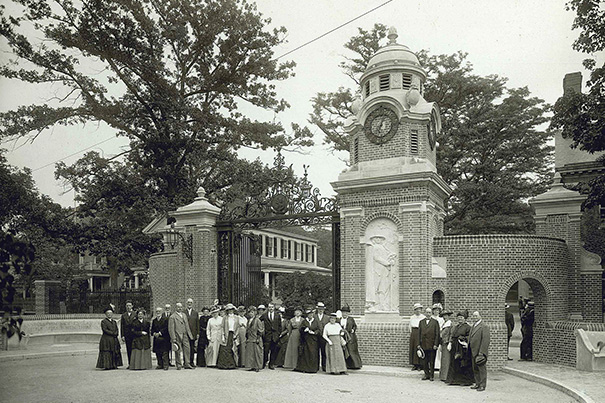
-
The rote notes of early U.S. law
The Harvard Law School Library has digitized law student notebooks from 200 years ago, giving online readers a glimpse at legal education in the young United States.
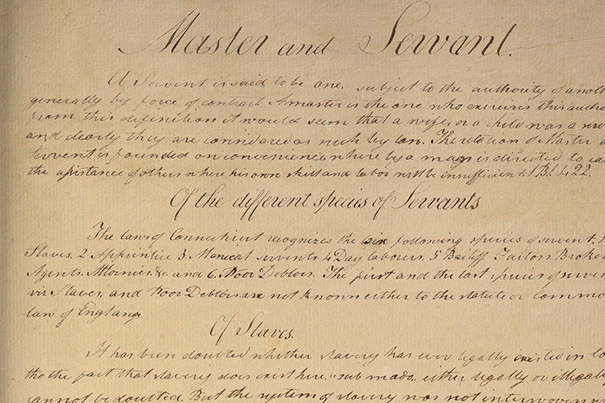
-
Oscar winner Matt Damon on his Harvard years
Actor Matt Damon, former Harvard College student and winner of the 2013 Harvard Arts Medal, talks of his time on campus, his lifelong desire to be an actor, and how a College playwriting course assignment later turned into the Academy Award-winning screenplay for “Good Will Hunting.”
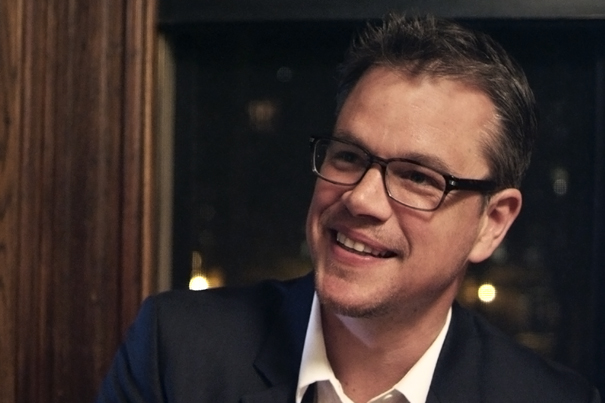
-
Sneakers, flip-flops, stilettos
This summer, dance students are learning how to swing, tango, salsa, and waltz, thanks to classes offered by Harvard Ballroom, a nonprofit, student-run dance organization that offers social dance classes throughout the year.

-
A woman’s endless work
Author Claire Messud discussed her latest novel during an appearance at Harvard as part of the Writers at Work series. “Midlife hits people at different times,” said Messud, a former Radcliffe Fellow. “That moment you realize life is finite, it has a horizon.”
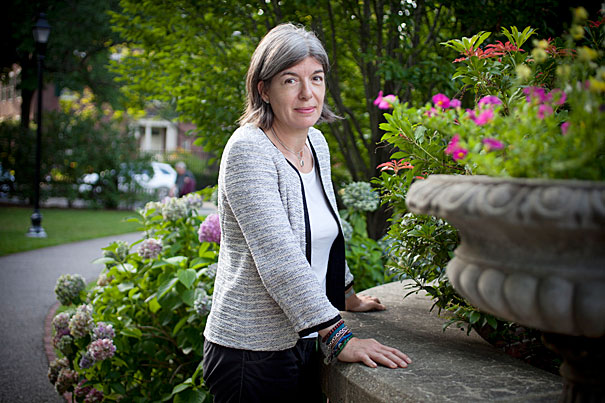
-
Boston, hotbed of anti-slavery
A Houghton Library exhibit, the work of students, takes in Boston’s sweeping role in ending slavery in America.
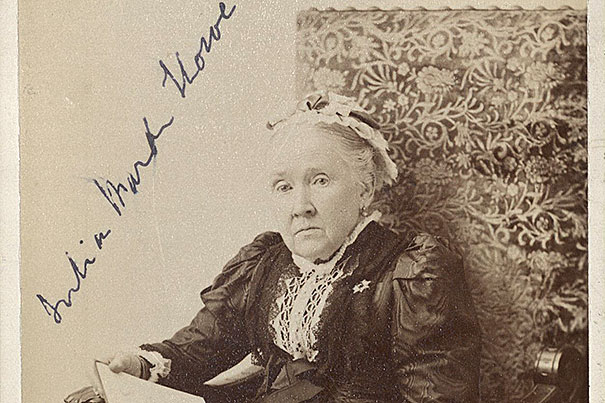
-
A year set to music
Matt Aucoin has been busy since graduating from Harvard last year. The young conductor and composer splits his time among Europe, New York, and Chicago, and is working on a Civil War-themed opera for the American Repertory Theater.
